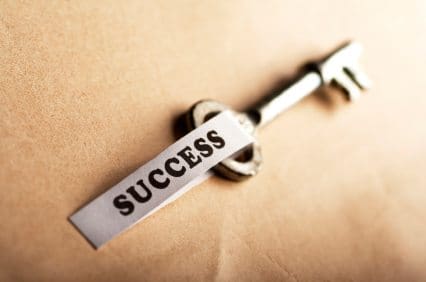This needs to be an honest assessment of our current performance, and we also need to accept that we can do more.
In my experience we fail to achieve our full potential because of one of two reasons, either we are doing the wrong job, or we are doing a poor job.
By wrong job, what I mean is that what we are doing will not lead to the success that we seek, e.g. if our goal is to be profitable, then looking to just increase revenue might not achieve that.
At one company where I worked our products were not profitable, and in order to increase profitability we demanded the sales people increased their sales. All this did was increase the losses that we made!
When teams are doing the wrong job, this can be because of poor communication, lack of clarity over what the goals were, or that they were just following a process that they didn’t understand and didn’t feel empowered to change.
If we are doing the wrong job this can be a very demotivating experience, because no matter how hard you work you’re never going to be successful, you’re just like a hamster running on a wheel.
If we see our teams working very hard and not making any progress this is usually a sign that they may not be doing the right job, and that we should first look at what they are doing rather than how.
Sometimes this just needs some subtle changes, as it’s not obvious as to why they are failing, or that they are doing the wrong job.
In one company where I worked our on-time project delivery rates were low, below 40 per cent and the managers insisted that everyone should work harder, yet this still had no significant impact on the performance.
It wasn’t until we did a detailed analysis of why we were failing that we realised that the speed was not the issue. It was our planning; too often dates were committed to before we knew how much work was involved or when the right resources would be available. This meant that we were late for 40 per cent of our projects before we had even started the work.
In this situation it doesn’t matter how hard you work, you will never be able to recover and meet the deadline.
Once we fixed the planning issue, it put the team in a position where they could be successful.
What we need to understand is that excellent service is just the product of high effectiveness and high efficiency, nothing more.
Now that we have our teams focused on the right jobs, all we need to do is to help them improve their efficiency, if we can do that then we are making great progress towards excellence.
In my experience, our teams lack efficiency for a number of reasons: a lack of training; a lack of resources; but more often than not because we lack transparency into the process and our progress, and because the work has been overcomplicated.
Too often processes get overcomplicated, ironically it is often harder to find a simple solution than a complex one, and maybe this is why we end up with so many complex, and over-engineered solutions.
We need to focus on simplicity, if we can find simple solutions and simple processes, it will lead to higher efficiency and more success.
Yes it might take more time and effort to find a simple solution than a complex one, but we need to remember that over time the simple process will be more efficient, so we should always look for simplicity, which might mean we need to reject the first solution we find.
Once we have our teams focused on the right jobs and we have simplified the process or solution, then the next thing we need to do, is to get transparency into performance, in order that we can improve it further.
We need to be able to have accurate performance reports, which show exactly how well we are doing against our given target, and ideally, this should be broken down to a team level, rather than just being measured at an overall level. This way we can hold each and every team accountable for their performance.
We can also see which teams are the high performers and which are the lower performers, and then look to share best practices between the teams to get them all up to the higher level.
Excellent performance comes from all of our teams performing at a higher level. We should not rely on the performance on one team to counter the poor performance of another.
We need to have open reviews with the teams on a regular basis, minimum monthly, to review performance. This allows us to see how the teams are doing, to be able to offer help and support, to use friendly competitive peer pressure to bring the overall consistency of performance to a higher level.
In summary, sustainable long terms success is achievable and it just requires us to focus on ensuring that our teams are doing the right jobs, and that they are doing these jobs well.
If we follow this process this will lead to a significant step change in performance, which will not only be sustainable, but will also help to create a winning culture as the team start to expect to be successful.
Gordon Tredgold has worked in IT for over 20 years and is a specialist in Transformational Leadership, Operational Performance Improvement, Organisational Development, Creating Business Value via IT, and Program and Change Management. He is the author of ‘Leadership: It’s a marathon not a sprint’ (£14.99) which is now available on Amazon.


